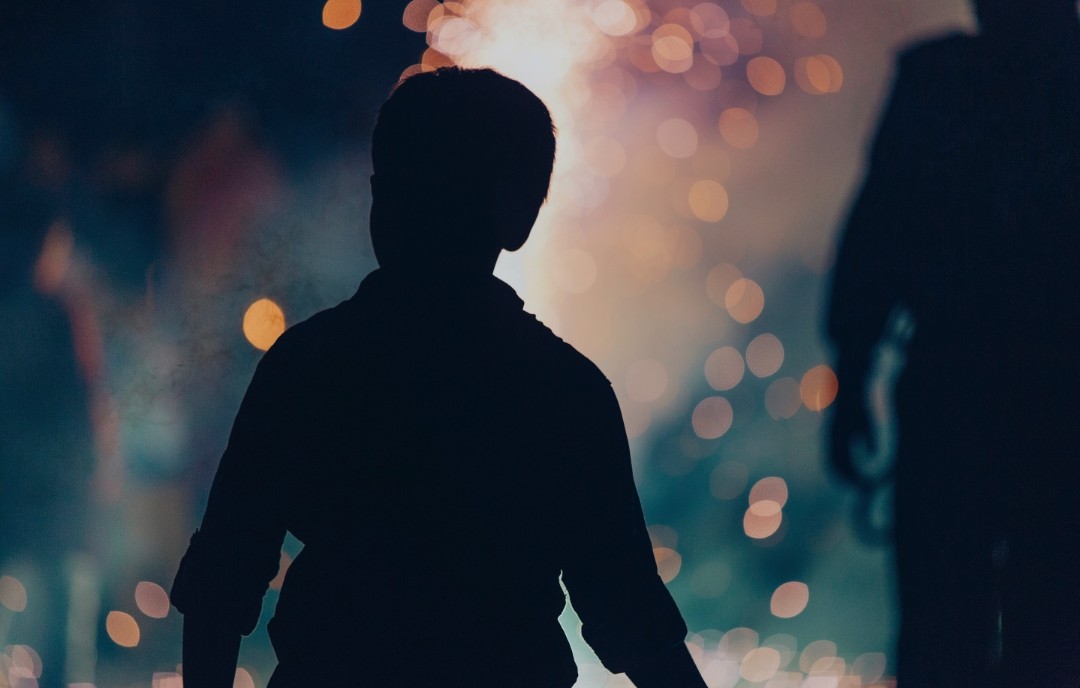With bonfire night approaching in the UK we thought we’d dig into the topic of autism and fireworks.
Specifically we consider below what impact fireworks can have on an autistic child and how to handle them as parents.
Firework celebrations
Fireworks are one of those things which are almost universally liked. The overwhelming majority of society would stop, look up and smile if they saw a large firework shoot into the sky.
But the key word in the above paragraph is ‘almost’.
There are people both adults and children who find fireworks distressing and uncomfortable.
Such people will quite regularly have a degree of hypersensitivity, often coming hand in hand with autism.
With that being the case, let’s consider why fireworks may be a distressing event for someone with autism;
Noise, vibration and lights
If you have ever been fortunate enough to witness a fireworks display at Disney then you’ll agree it’s quite a spectical.
I remember as a child looking up in amazement as the sky was alight in perfect precision.
Another memory I have however is one of shock at how I could actually feel the fireworks in my stomach.
The boom of a new explosion was accompanied by a distinct, strong vibration in my tummy.
Now I didn’t mind this feeling, in fact I quite liked it but knowing what I do now, I appreciate how it could be distressing to someone with autsim.
The other obvious point to note is the sheer volume of the explosions. Not only do you feel the vibrations, it is sometimes shocking on your ears.
Again for anyone with hypersensitivity this could be a very unpleasant experience.

A lack of control
People with autism often find comfort in predictability and routine. These are two factors which aren’t often present in firework displays.
A watching crowd is merely a passenger in the process with no control over what firework is released next and how long the display will last.
I also vividly remember being told that there will often be a crescendo at the end of a display. I’d wait and wait for this final flourish, never knowing when it would kick in.
All of this unpredictability can be very alarming to someone who likes to know exactly what is coming.
The other obvious factor relating to routine is that fireworks displays are often once a year.
They could accompany a religious festival, new years eve or something like Guy Fawkes night in the UK.
With them being so sporadic it is not something a child with autism will come to expect or predict.
Crowds
Obviously some fireworks displays take place in the comfort of your own property.
With that said however it is fair to say that the majority of displays are in large public areas. If anyone has seen in the new year in a major city you will know what this feels like.
It’s often a mosh pit of people squeezing past one and another, stepping on toes and barging by.
This is often unpleasant for those who are neuro-typical, let alone those with autism.

How can parents make fireworks more comfortable
The first thing to note in this section is not all autistic children and adults dislike fireworks.
For some they can be a very enjoyable event with the sounds, feelings and lights sparking excitement and wonder.
If you do have a child however who is hypersensitive or doesn’t enjoy them typically then here are some considerations;
Start small
Fireworks come in all shapes and sizes. They start from tiny sparklers and go all the way to the almost bomb like explosions.
You could try as a family just having some very small fireworks at home. Consider involving your child in the process, such as picking the next firework so they have a degree of autonomy.
Guard their sensitivities
This is a suggestion right out of the obvious box but parents should try and shield their child where possible.
Additions such as ear defenders or even sunglasses may help your child feel more comfortable with fireworks.
Watch and prepare
Parents could try and prepare their child in advance for a firework display. There are many ways to do so but one easy option would be to watch footage of displays online.
Whilst doing so parents can explain that you as a family will be watching similar the following day as an example.
Leaning on this suggestion parents could use tools like a schedule board or social stories.
Both of these can help a child mentally prepare for the event in advance.
Decide against it
A readily available option for those with autistic children is to just avoid displays altogether.
If you as a family have had negative experiences previously and despite best efforts feel it will repeat, then perhaps missing the event is your best option.
It must be noted however that depending where you live fireworks can often intrude regardless.
The sounds from a display can make your child’s evening distressing, even when at home.
If that is the case for you then you could consider options like black out blinds and ear defenders at home.
Summary – Autism and fireworks
The option of attending a fireworks display with an autistic child is a tricky decision.
On one hand you won’t want your child to miss out on the potential fun. But on the other you don’t want to distress them at all either.
Consider slowly introducing your child to fireworks and using tools to assist along the way.
With a soft and slow introduction in time you may be able to enjoy such events as a family.
Good luck.
Any tips or ideas?
We would love to hear from you if you have got any techniques or ideas for our readers to try.
Be sure to leave a comment if any of the above has helped or if you have any ideas we can add to this article.
Also be sure to search for any other articles you might find helpful.
Try for example searching below for topics like ‘meltdown’ or ‘communication’.


Complete no go in our house. If anything we go where we can’t even here them.